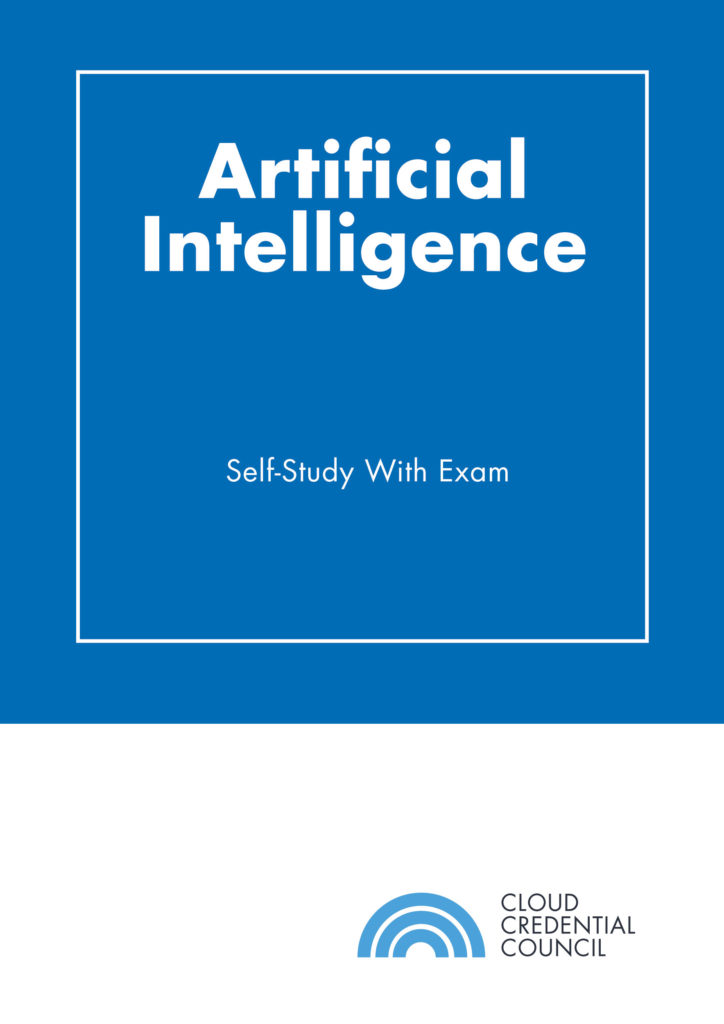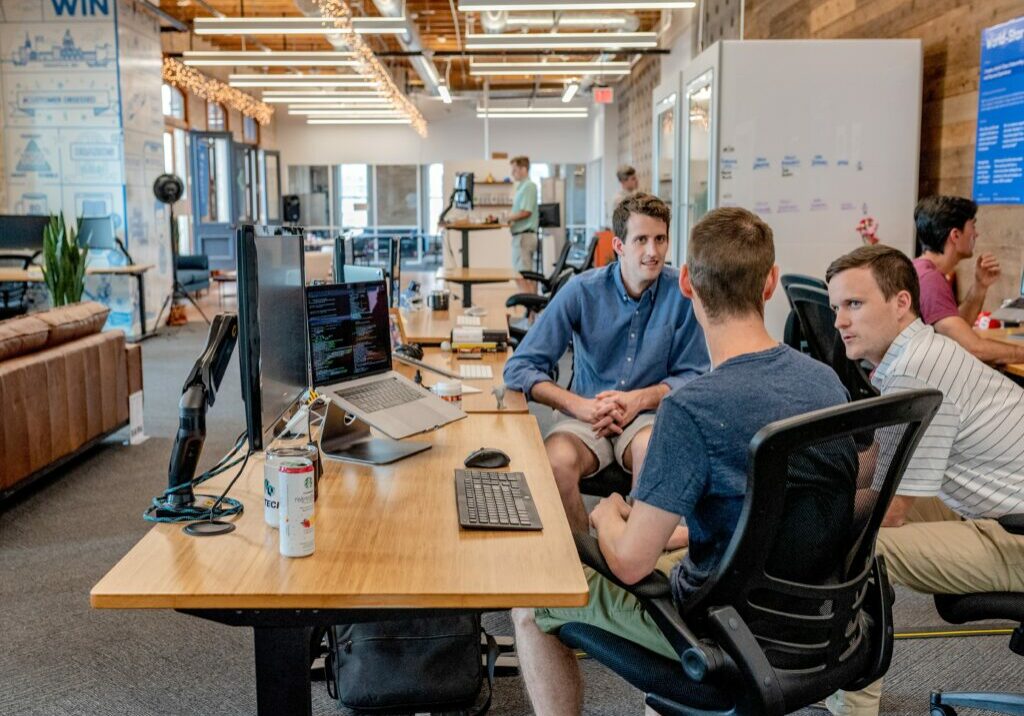The role of Artificial Intelligence in Today’s Hybrid Workplace

Selina Thompson

According to Gartner (2019), the number of companies adopting artificial intelligence (AI) has grown by 270% since 2017, and the global market will be worth $267 billion by 2027. It’s no wonder, given our increasing reliance on AI to take over repetitive human tasks – shifting our daily habits and how businesses operate.
When looking at the future of work, AI’s role in creating an ‘augmented workforce’ consisting of AI systems, robotics, and cognitive tools ‘that ‘make work easier and more scalable’ is well documented. But what about the role of AI within the new hybrid workplace, where the reliance on technology is now at an all-time high?
This article explores how AI is accelerating the realization of the future of work requirements.
Has AI replaced my job?
Given the accelerated digital transformation of all industries during COVID-19, it would seem AI has replaced the jobs we once knew, but this isn’t the case yet. The Future of Jobs Report 2020 by the World Economic Forum states that ‘by 2025, the time spent on current tasks at work by humans and machines will be equal’ and of the businesses surveyed, ‘43% indicate that they are set to reduce their workforce due to technology integration’.
Despite early fears that AI will cause the demise of jobs fulfilled by humans, the rise of digital workplace technology has shifted employee perception as they see the value to their role and organization. Research published by SnapLogic “found 81% of employees believe AI improves their overall performance at work. As a result, more than two thirds (68%) are calling on their employers to deploy more AI-based technology to help them execute their work better and faster”. Furthermore, the Massachusetts Institute of Technology believes “the most promising uses of AI will see people and computers working together as “superminds” to do both cognitive and physical tasks that could not be done before”.
How is AI changing the future of work?
Businesses have an insatiable appetite for augmented technologies as ‘worldwide revenues for the AI market, including software, hardware, and services, are estimated to reach $341.8 billion (15.2% y-o-y) in 2021’ the International Data Corporation Worldwide Semiannual Artificial Intelligence Tracker. The largest share of AI spend (88%) goes to AI Software, while AI Hardware is experiencing the fastest growth, followed by AI Services in the coming years.
It’s estimated that AI will increase productivity by at least 40% by 2035, so how are today’s AI use cases supporting the future of work? The article ‘9 real-world examples of automation in the workplace’ by atSpoke shares the following:
· Hybrid Working
Automated workplace tools take the hassle out of hybrid working arrangements, including diary scheduling, booking meeting rooms and physical workspaces, building directions and lobby display information. Furthermore, the use of AI for Integrated Workplace Management Systems (Facilities, HR and IT), AI algorithms and AI security systems are a powerful addition when combined with the Internet of Things (IoT) to produce predictive and preventative actionable data insights.
· IT Helpdesk
Chatbots attend to repetitive help requests of password resets, hardware orders and basic ‘how-to guidance, and in return, IT Helpdesk resources can refocus their efforts on strategic work. Autofill forms are made possible with robust encryption software to fill any online form automatically, and automated e-signature tools monitor and secure your documents, so you always know the sent and received status.
· Workplace Design
The combination of AI and generative design creates intelligent office designs that best meet the needs of your workforce.
· HR Analytics
AI tools automate employee and candidate data extraction to create actionable insights that are helping HR teams to understand their employees better and enhance the candidate experience. With 67% of recruiters and hiring managers stating in LinkedIn research that AI saves them time, it’s clear to see the benefits of automating HR processes, including automated applicant tracking systems to assess and select resumes.
AI use cases are also found in:
· Employee Wellbeing
Preventing burnout is a top priority for employers trying to maintain workforce engagement and productivity levels amongst employees suffering from ‘pandemic-related anxiety and isolation, heavier workloads and little to no time off’. AI plays a significant role in increasing Digital Wellness through insights into our usage of digital tools and recommended improvements alongside reducing our workload of manual and repetitive tasks.
· Online Education
Accelerated adoption of language apps, virtual tutoring, video conferencing tools and online learning software during the pandemic has led to a spike of global ed-tech investments in online education that is expected to reach $350 billion by 2025 (from US$18.66 billion in 2019), states The World Economic Forum. Conversational AI is at the heart of this adoption, enabling virtual assistance and chatbots for student queries and human-like responses to their requirements.
Investment in AI solutions today enables the jobs of tomorrow
At the beginning of this article, we started with the idea that AI supports the ‘new normal’ of hybrid working and, as a result, paves the way for new professions. A recent survey by the UK’s Open University found that no less than eight of the top ten ‘jobs of the future’ are in the realm of computer science: machine learning consultant (specialized in ‘data mining’), ethical hacker (testing cybersecurity systems), blockchain developer, AI developer, AI analytics engineer, data analyst, data protection officer and digital content strategist.
From this list, the top 5 future jobs with the greatest need are:
- Sustainability Officer
- AI Developer
- Digital Content Strategist
- Cyber Security Penetration Expert
- Renewables Engineer
The Financial Times concludes that the effects of technology on the workforce by 2022 will result in several shifts. For example, a reduced workforce due to automation in ICT and Mining, modified operations locations in Financial Services and ICT, and workforce expansion in Professional Services, all by 70% or more. The benefits of AI for future roles will predominantly be seen in Healthcare, Manufacturing, Banking and Financial Services, Retail and E-Commerce where they will experience a reduction in human error, cybersecurity agility, and faster decision-making.
How to prepare for a future with AI?
The return on investment with AI will result from new technologies, professions and soft skills, including resilience, stress tolerance, collaboration & teamwork, analytical thinking & innovation, cognitive flexibility and emotional intelligence (according to EHL Insights).
The key to this realization is upskilling and knowledge to be fully prepared. It is essential to understand how Artificial Intelligence works, its evolution and concepts, and fundamental learning in databases, statistics, and programming. Start your learning journey with the Cloud Computing Council’s Artificial Intelligence Foundation™ course.
Concluding Thoughts
The arrival of Artificial Intelligence has brought many myths to the digital world, but its benefits for society and business far outweigh the fears. Thanks to advancements in digital transformation during COVID-19, many industries see the reliance on automation and robotics as inevitable to achieve greater efficiencies of manual tasks and increased productivity on human-led strategic work.
As the world prepares for hybrid-working, AI has become a key component to its success by delighting the workforce and customers alike. We are no longer debating whether robots will replace our jobs; instead, we are now looking ahead to expanding our workforce with robots and humans performing their respective roles side by side.
Courses to help you get
results with Artificial Intelligence
Artificial Intelligence Foundation™
The CCC’s Artificial Intelligence (AI) Foundation™ course provides an overview and insight into the critical emerging technology of Artificial Intelligence to organizations and individuals around the world. This vendor-neutral, cross-industry foundation course: Builds upon the AI definition, its evolution, concepts, and applications. Provides an introduction to machine learning concepts. Explains the main business drivers and…
Never miss an interesting article
Get our latest news, tutorials, guides, tips & deals delivered to your inbox.
Keep learning




